The International General Certificate of Secondary Education (IGCSE) is a globally recognized qualification for students typically aged 14 to 16, developed by the University of Cambridge International Examinations (CIE) and other awarding bodies. It serves as an internationally respected equivalent to the UK’s GCSE and is widely accepted by schools, colleges, and universities around the world.
Designed to prepare students for further academic study, including A Levels, IB Diploma Programme, or equivalent qualifications, the offers a broad and flexible curriculum with over 70 subjects to choose from, including languages, sciences, humanities, mathematics, and creative arts.
One of the IGCSE’s key strengths lies in its adaptability; schools can tailor subject choices to meet local needs while maintaining international standards. The program also emphasizes critical thinking, problem-solving, and application of knowledge, ensuring students are equipped with skills for higher education and beyond.
Its international recognition, diverse subject options, and balanced approach to learning make International GCSE, a preferred choice for students seeking a high-quality secondary education with global credibility.
What is IGCSE?
The International General Certificate of Secondary Education (IGCSE) is an internationally recognized secondary school qualification for students aged 14 to 16. It is offered by examination boards such as Cambridge Assessment International Education (CAIE) and Pearson Edexcel. The International GCSE is considered the global equivalent of the UK’s General Certificate of Secondary Education (GCSE) and serves as a strong foundation for advanced studies like A Levels, IB Diploma Programme, or other pre-university courses.
The International General Certificate of Secondary Education curriculum is broad and flexible, allowing students to choose from a wide range of subjects, including:
- Core subjects: Mathematics, English, Sciences
- Languages: First and second languages from different regions
- Humanities: History, Geography, Economics, etc.
- Creative and vocational subjects: Art, Music, Computer Science, Business Studies, and more
Assessment methods include written examinations, oral tests, coursework, and practical work, depending on the subject. This diversity ensures students develop not only academic knowledge but also problem-solving, communication, and analytical skills.
Recognized by universities, colleges, and employers worldwide, International General Certificate of Secondary Education provides students with the academic credibility and skills needed for higher education and global career opportunities.
History and Background of IGCSE
The International General Certificate of Secondary Education (IGCSE) was developed in the 1980s by the University of Cambridge Local Examinations Syndicate (UCLES), now known as Cambridge Assessment International Education (CAIE), to provide a high-quality, internationally relevant curriculum and assessment for students outside the United Kingdom.
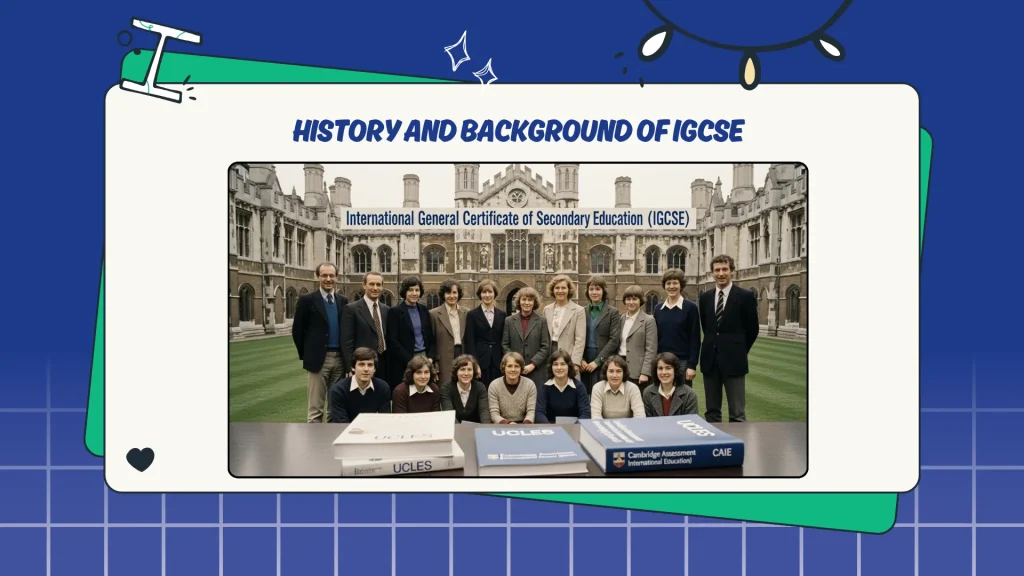
Before the British secondary school qualification, students outside the UK mainly took the British GCSE, which was not always fully adapted to different cultural contexts or educational needs worldwide. This was created to fill this gap by offering a flexible, globally applicable qualification that combined rigorous academic standards with the ability to adapt to local contexts and diverse student needs.
Over time, it has grown in popularity and recognition, becoming one of the most widely taught international qualifications for secondary education. It is now offered in thousands of schools across over 150 countries, helping students prepare for further academic pursuits such as A Levels, International Baccalaureate (IB), and other advanced secondary qualifications.
IGCSE curriculum emphasizes not just knowledge acquisition but also the development of critical thinking, problem-solving, and independent learning skills, making it highly respected by universities and employers worldwide.
Key Features of IGCSE
The International General Certificate of Secondary Education (IGCSE) is designed to provide a high-quality, internationally recognized qualification with flexibility and rigor. Here are the key features that make This stand out:
1. Wide Range of Subjects
- Offers over 70 subjects, including languages, sciences, humanities, mathematics, arts, and vocational courses.
- Students can choose subjects that suit their interests and future academic or career goals.
2. Internationally Relevant Curriculum
- Content is designed to be globally applicable, with examples and contexts suitable for students from diverse cultural backgrounds.
3. Flexible Assessment Methods
- Includes a mix of written exams, oral tests, coursework, and practical assessments depending on the subject.
- Allows students to demonstrate their knowledge and skills in various ways.
4. Focus on Skill Development
- Emphasizes critical thinking, problem-solving, analytical skills, and independent learning, not just memorization.
5. Language Options
- Offers first and second language courses in multiple languages to promote multilingual proficiency.
6. Preparation for Further Study
- Acts as a strong foundation for advanced qualifications like A Levels, IB Diploma, and other pre-university programs.
7. Global Recognition
- Widely accepted by universities, colleges, and employers worldwide, providing students with international academic credibility.
8. Suitable for Different Learners
- Available in different syllabi to cater for learners of varying abilities, including core and extended curricula for some subjects.
Popular IGCSE Subjects
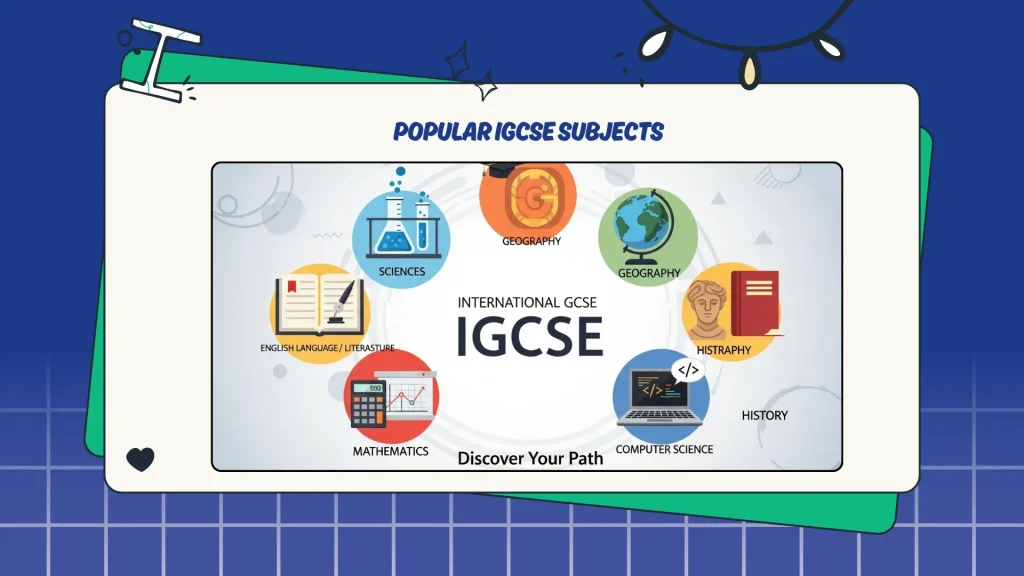
International GCSE offers a broad spectrum of subjects, allowing students to tailor their studies according to their interests and plans. Here are some of the most popular and widely chosen subjects across different categories:
1. Languages
- English Language (First Language)
- English Literature
- Urdu (First or Second Language)
- French
- Spanish
- Arabic
- Mandarin Chinese
2. Sciences
- Combined Science (Core or Extended)
- Biology
- Chemistry
- Physics
3. Mathematics
- Mathematics (Core and Extended)
- Additional Mathematics (for advanced learners)
4. Humanities and Social Sciences
- History
- Geography
- Economics
- Business Studies
- Global Perspectives
5. Creative and Technical Subjects
- Art and Design
- Computer Science
- Information and Communication Technology (ICT)
- Drama
- Design and Technology
6. Vocational and Other Subjects
- Accounting
- Environmental Management
- Physical Education
These popular subjects not only build a strong academic foundation but also help students develop critical thinking, creativity, and practical skills.
IGCSE Curriculum Structure
The IGCSE curriculum is designed to provide a balanced and flexible education that prepares students for higher secondary education and global challenges. It encourages broad learning while allowing students to specialize according to their interests and future goals.
1. Subject Groups
the program is organized into broad subject groups to ensure a well-rounded education:
- Languages: First and Second Languages
- Sciences: Biology, Chemistry, Physics, Combined Science
- Mathematics: Core and Extended Mathematics, Additional Mathematics
- Humanities and Social Sciences: History, Geography, Economics, Business Studies
- Creative and Vocational: Art, Design & Technology, Computer Science, Drama, Physical Education
2. Core and Extended Curriculum
Many subjects offer Core and Extended syllabuses:
- Core Curriculum: Covers fundamental concepts and is suitable for students aiming for grades in the middle range (usually grades C to G).
- Extended Curriculum: Covers more advanced topics, allowing students to achieve higher grades (A* to E).
3. Subject Choice and Number
- Students usually take 5 to 10 subjects, depending on school requirements and individual goals.
- Schools often require a minimum number of subjects from key groups (e.g., at least one language, mathematics, and science).
4. Assessment Components
Assessment varies by subject and may include:
- Written examinations (the primary mode of assessment)
- Oral examinations (especially for language subjects)
- Coursework or practical assessments (e.g., science experiments, art portfolios)
- Project work
5. Duration
The course typically lasts 2 years, often covering Grades 9 and 10 or equivalent.
This curriculum structure offers students both breadth and depth, enabling them to build a strong foundation for advanced studies like A Levels or the IB Diploma.
IGCSE Grading System
The grading system uses a scale designed to reflect a student’s level of achievement in each subject, helping universities, schools, and employers understand their performance clearly and fairly.
1. Grading Scale (9 to 1)
Since 2017, many subjects have followed the 9 to 1 grading scale, where:
- 9 = Highest level of achievement (above A*)
- 8 = Equivalent to A*
- 7 = Equivalent to A
- 6 = Equivalent to B
- 5 = Equivalent to C (considered a good pass)
- 4 = Equivalent to a low C or high D (pass)
- 3 = Equivalent to D or E (pass)
- 2 = Equivalent to E or F (fail)
- 1 = Lowest grade (fail)
2. Alternative Letter Grades (A to G)*
Some subjects and regions still use the traditional A to G grading system*, where:
- A* = Highest achievement
- A, B, C = Pass grades
- D, E, F, G = Fail or near fail grades
- U = Ungraded/Fail (unclassified)
3. Pass and Fail
- A grade 5 (or C) and above is generally considered a pass for most subjects.
- Grades below this may not meet the minimum requirements for progression to advanced studies.
4. Assessment and Weighting
- Grades are awarded based on examinations, coursework, and practical assessments, depending on the subject.
- The final grade reflects a student’s overall performance across all components.
5. Grade Reporting
- Students receive a Statement of Results showing grades for each subject.
- These grades are widely accepted for university admissions and job applications globally.
IGCSE in Pakistan
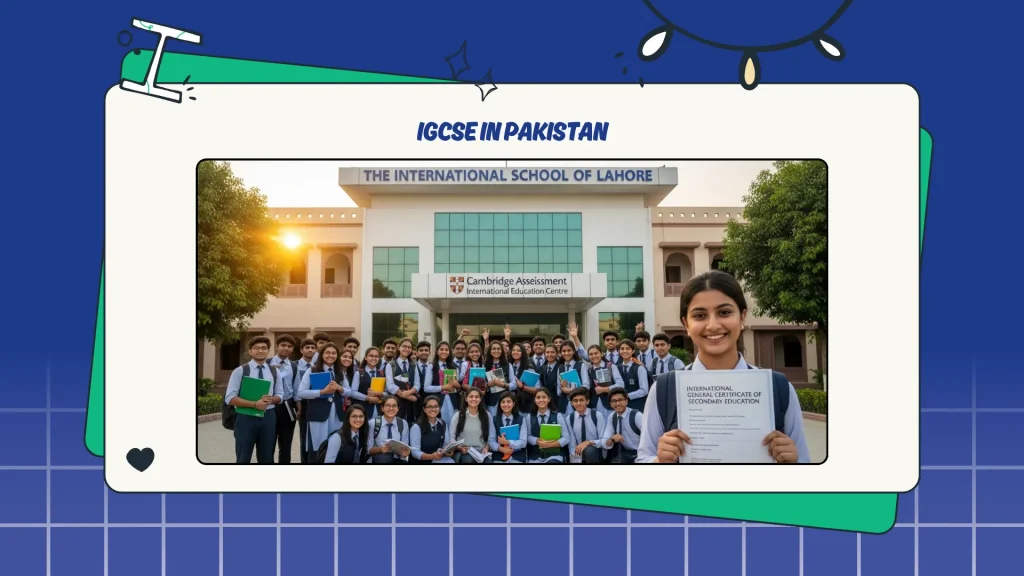
The International General Certificate of Secondary Education is one of the most popular international qualifications offered in Pakistan, especially among private and international schools. It provides students with a globally recognized certification that opens doors to higher education both locally and abroad.
1. Popularity and Availability
- IGCSE is widely offered by many leading private schools and international campuses in major cities such as Karachi, Lahore, Islamabad, and Rawalpindi.
- Schools offering include brands like International Grammar School & College (IGSC), Karachi Grammar School (KGS), Lahore Grammar School (LGS), and Roots International Schools & Colleges.
2. Exam Boards in Pakistan
The most common exam boards for IGCSE in Pakistan are:
- Cambridge Assessment International Education (CAIE)
- Pearson Edexcel
3. University Recognition
- The Inter Board Committee of Chairmen (IBCC) recognizes IGCSE qualifications and provides equivalence certificates that allow students to pursue higher education in Pakistani universities.
- Many local and international universities accept certificates as a valid secondary education credential for admission.
4. Advantages for Pakistani Students
- this qualification offers a broad and flexible curriculum suitable for students aiming to study abroad or in top local universities.
- Emphasizes critical thinking, practical knowledge, and English proficiency, aligning well with global education standards.
- Provides a strong foundation for A Levels, IB Diploma, and other advanced programs available in Pakistan.
IGCSE vs. O Levels Which is better in Pakistan?
The International General Certificate of Secondary Education and O Levels are two of the most popular secondary school qualifications offered internationally, especially in countries like Pakistan. While they share many similarities, there are important differences that students and parents should understand to make the best choice.
1. Origin and Governing Bodies
- IGCSE: Developed by Cambridge Assessment International Education (CAIE) in the 1980s as a more international and flexible version of O Levels.
- O Levels: Originated in the UK and are administered by various boards, including Cambridge Assessment, Edexcel, and local examination boards in some countries.
2. Curriculum Flexibility
- IGCSE: Offers a broader, more modern, and flexible curriculum that is internationally relevant and adaptable to diverse cultural contexts. It encourages critical thinking and application-based learning.
- O Levels: Traditionally more exam-focused with a curriculum that can be more rigid and content-heavy, often emphasizing memorization.
3. Subject Availability
- IGCSE: Offers a wider range of subjects (over 70), including more contemporary and vocational subjects.
- O Levels: While also offering many subjects, some boards have a narrower selection, focusing more on traditional academic subjects.
4. Assessment Style
- IGCSE: Uses a combination of written exams, coursework, oral tests, and practical assessments, encouraging continuous assessment and skill development.
- O Levels: Primarily assessed through final written exams, with limited coursework or practical components depending on the subject.
5. Grading System
- IGCSE: Uses a 9 to 1 grading scale (newer system) or traditional A* to G grades depending on the subject and board.
- O Levels: Generally use the A to G grading system*.
6. Recognition and Acceptance
- Both qualifications are widely accepted by universities and employers worldwide, but This Program is often viewed as slightly more modern and internationally focused.
- Both require equivalence certification in countries like Pakistan for local university admissions.
7. Popularity in Pakistan
- O Levels have historically been more established and popular, but IGCSE is growing rapidly due to its flexible approach and relevance to modern education.
University Pathways After IGCSE
Completing the IGCSE is an important step in a student’s academic journey, but it is considered a secondary education qualification. To enter university, students typically need to pursue further studies after this qualification to meet university admission requirements. Here’s an overview of common pathways after Cambridge IGCSE:
1. A Levels
- The most common and direct route after IGCSE is enrolling in AS and A Levels, which usually take 2 years (Grades 11 and 12).
- A Levels offer in-depth specialization in 3 to 4 subjects and are widely recognized by universities worldwide, especially in the UK, Pakistan, and Commonwealth countries.
2. International Baccalaureate (IB) Diploma Programme
- Some students opt for the IB Diploma Programme, a two-year pre-university course with a broad and balanced curriculum.
- IB is internationally recognized and valued for its rigorous academics and emphasis on research and community service.
3. Other National or International Pre-University Qualifications
- In some countries, students may choose local pre-university diplomas or equivalents, such as Intermediate (F.A./F.Sc.) in Pakistan, Advanced Placement (AP) courses in the US, or other national systems.
4. Foundation Programs
- Foundation or preparatory courses are offered by many universities, especially for international students, to bridge the gap between secondary education and undergraduate studies.
- These programs often last one year and focus on academic skills and subject knowledge needed for university.
5. Vocational and Technical Pathways
- Some students choose vocational diplomas or certifications after International GCSE, especially if they want to enter professional or technical fields early.
- These pathways can lead to university admission later or directly to the workforce.
University Admission Requirements
- Universities typically require completion of A Levels, IB Diploma, or an equivalent qualification after IGCSE for undergraduate admission.
- A strong academic record, relevant subject choices, and sometimes entrance exams or interviews are part of the admission process.
Conclusion
The International General Certificate of Secondary Education (IGCSE) stands as a globally recognized, rigorous, and adaptable qualification that empowers students to thrive academically and personally. By offering a wide range of subjects, flexible assessment methods, and a balanced focus on theory and practical skills, IGCSE equips learners with the knowledge and competencies necessary for success in higher education and future careers.
With its broad acceptance by universities and employers worldwide, including in Pakistan through IBCC equivalence, IGCSE offers students a competitive edge in an increasingly globalized world. It nurtures not only academic excellence but also critical thinking, problem-solving, and independent learning, essential skills for the 21st century.
Whether students plan to pursue A Levels, the IB Diploma, or professional pathways, IGCSE provides a solid foundation and prepares them to confidently face new challenges ahead.
For parents and students seeking a reputable international curriculum that combines quality, flexibility, and global recognition, IGCSE remains a trusted and highly recommended choice.
Frequently Asked Questions (FAQs)
How is IGCSE different from O Levels?
IGCSE offers more flexibility with subject choices and assessment methods, including coursework and oral exams, while O Levels are more exam-focused. Both qualifications are globally recognized, but IGCSE tends to be more adaptable to different learning styles.
What grading system does IGCSE use?
IGCSE grades are awarded on a scale from 9 to 1, where 9 is the highest. Some boards may still use the traditional A* to G scale. The grading depends on the subject and exam board.
Can IGCSE students apply to universities in Pakistan?
Yes, students with IGCSE qualifications can apply to Pakistani universities. However, they must obtain equivalence certificates from the Inter Board Committee of Chairmen (IBCC) to validate their international qualifications.
How long does it take to complete the IGCSE?
Typically, students complete IGCSE over two years, covering a range of subjects that suit their academic and career goals.
What subjects are available in Program?
This Program offers a wide variety of subjects, including languages (English, Urdu, French), sciences (Physics, Chemistry, Biology), humanities (History, Geography), mathematics, business studies, computer science, and creative arts.
Does IGCSE include practical assessments?
Yes, many science and creative subjects include practical or coursework assessments alongside written exams, helping students develop hands-on skills.
Is IGCSE recognized worldwide?
Yes, IGCSE is widely accepted by schools, colleges, and universities around the world, including in the USA, UK, Canada, Australia, and many other countries.
Can IGCSE students study medicine or engineering after completion?
Absolutely. If students choose the relevant science and mathematics subjects and meet university entry requirements, they can pursue professional degrees like medicine or engineering.
Are there different exam boards for IGCSE?
Yes, the main exam boards offering IGCSE are Cambridge Assessment International Education (CAIE) and Pearson Edexcel. Both boards provide internationally recognized qualifications with slight differences in syllabus and assessment style.




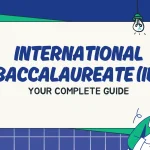
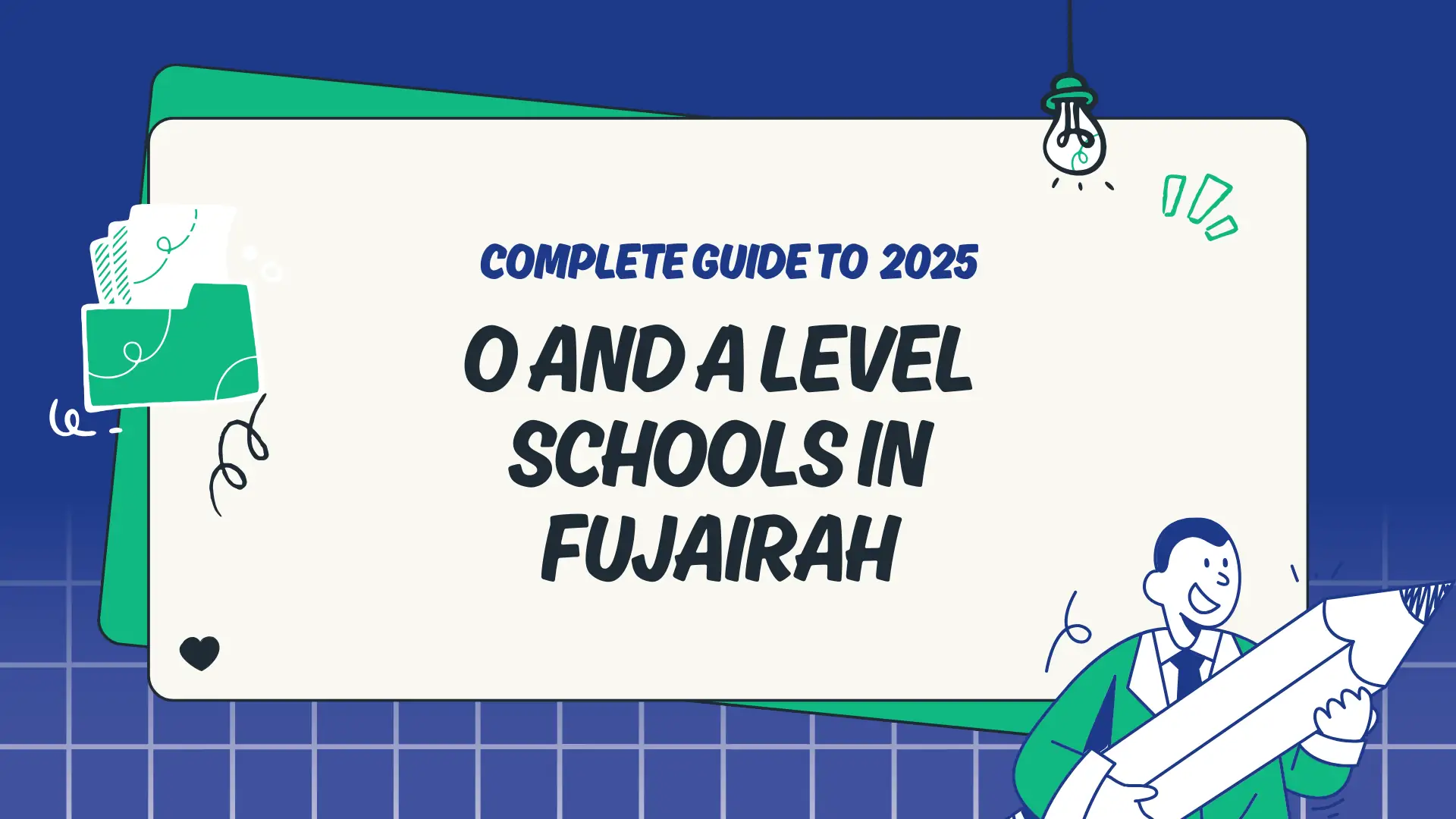

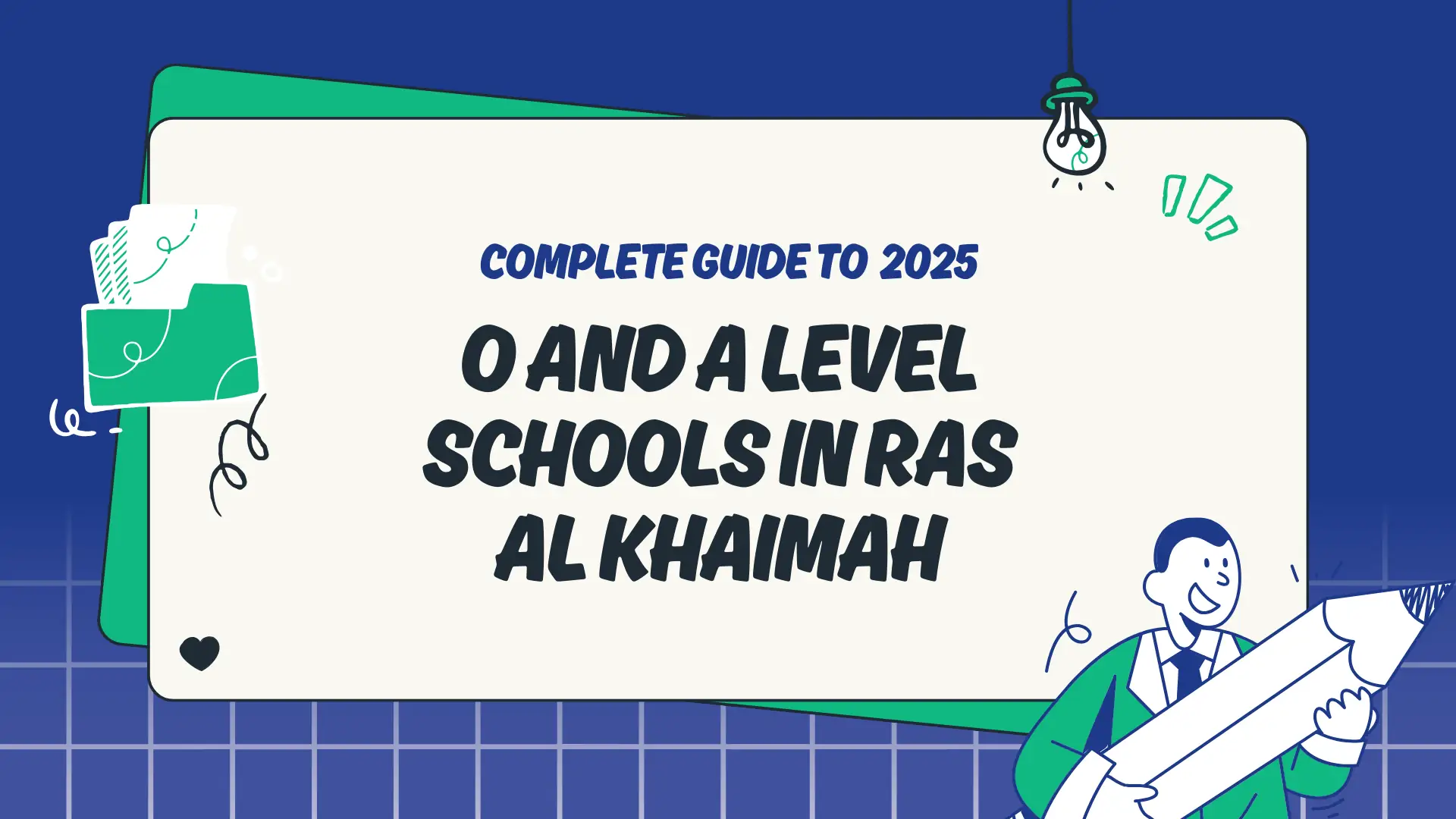
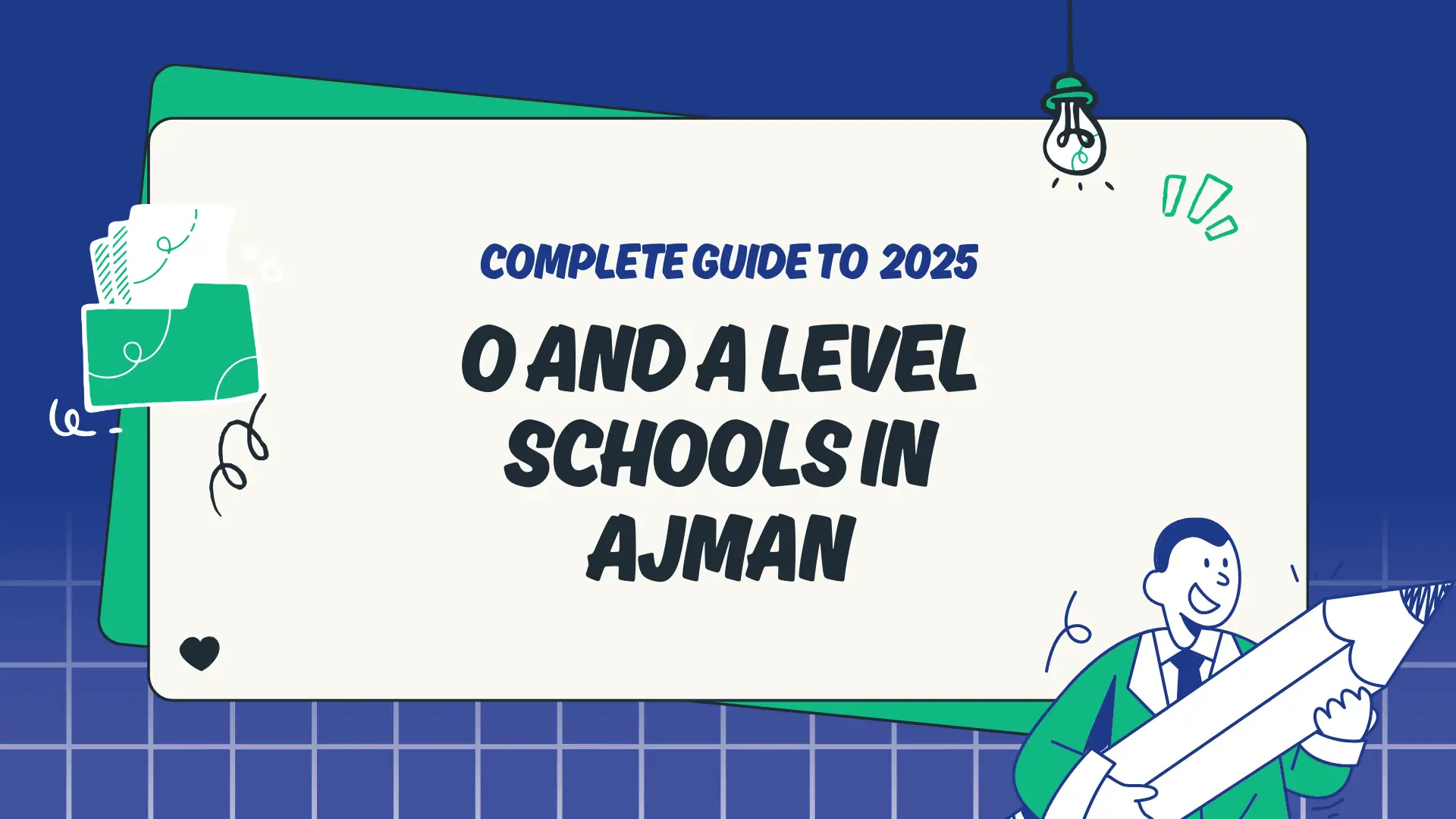
Leave a comment